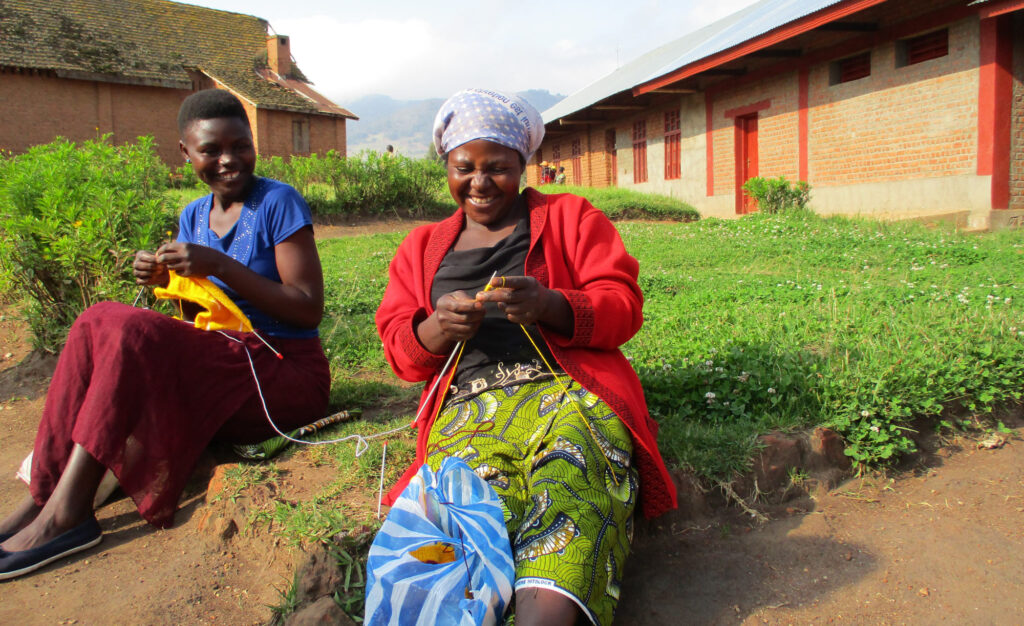
Democratic Republic of the Congo
Years after the official end of a decade-long civil war in the Democratic Republic of the Congo (DRC), violence remains pervasive throughout eastern DRC, sexual abuse of women and children continues to escalate and more than one-third of the population lacks access to basic healthcare.
International Medical Corps has worked in the DRC since 1999, providing primary and secondary healthcare, capacity-building, prevention and treatment of violence against women and girls, nutrition support, social and behavioral change, food security programs, mental health and psychosocial support (MHPSS), and water, sanitation and hygiene (WASH) services. In recent years, we have responded to multiple outbreaks of disease, including Ebola, measles, polio, COVID-19 and mpox.
International Medical Corps is currently serving communities in remote and hard-to-reach areas in North Kivu, South Kivu and Tanganyika provinces, in the eastern part of the country. We have served more than 2 million people in the DRC, many of whom have been affected by armed conflict.

111.9 million
6.9 million
60/64
male/female
The Challenges
Our Response

Healthcare
International Medical Corps currently supports more than 200 health centers and hospitals across 11 health zones, providing essential drugs, medical supplies, training, and referral and transfer of patients who need specialized care. Our beneficiaries include Ebola-affected communities, internally displaced persons (IDPs), returnees and vulnerable host populations. Given the considerable gaps in primary healthcare services in International Medical Corps’ areas of intervention, we focus on providing a comprehensive and integrated primary care package, including immunization campaigns, advancement of maternal and child health, and improved environmental sanitation and hygiene practices at targeted health facilities. We continue to support capacity-building within these health centers to ensure that treatment quality remains high.

Violence Against Women and Girls
Since 2002, International Medical Corps has helped lead the battle against violence affecting women and girls in war-ravaged eastern DRC. International Medical Corps is implementing protection, child protection and other activities, including establishing women’s and girls’ safe spaces, training paralegals, and providing psychological first aid and other support to survivors of such violence.
International Medical Corps supports efforts by more than 30 community-based organizations and health facilities to strengthen core services for survivors, particularly quality case management and psychosocial support services.

Nutrition
Together with our global partners, International Medical Corps provides nutrition services in communities of North Kivu, South Kivu and Tanganyika provinces, helping thousands of children recover from malnutrition. Our nutrition services treat severely and moderately malnourished children and adults—particularly pregnant and lactating women—and support livelihood interventions.
To help parents take ownership of their families’ nutritional needs, we provide nutritional education and training sessions to help people cultivate staple crops. Our teams also support procurement, transportation and distribution of nutrition supplements such as ready-to-use therapeutic food and therapeutic milk. We also provide monitoring tools to health facilities to help them recognize and treat malnutrition.
Ebola Outbreaks
Thanks to our extensive experience helping to lead the response to the 2014 West African outbreak, the DRC asked for our help in 2018 when the deadly virus struck in the country’s Équateur region. We helped quell that outbreak—the country’s ninth—by July of that year, but in August another outbreak occurred along the war-torn eastern edge of the country that would grow to become the second-largest in world history. To find out more, click the link below.
Learn more

